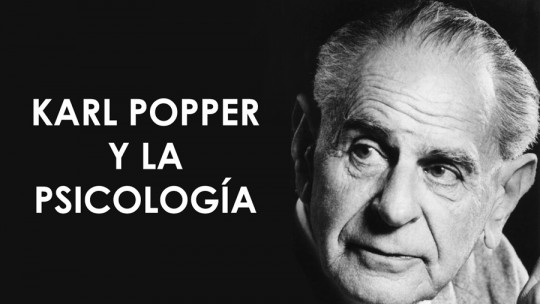
Psychology is a science, specifically the science of behavior and mental processes. However, no science generates knowledge by itself if it is distant from philosophy, a discipline related to reflection and the exploration of new ways of perceiving and interpreting things.
Epistemology, specifically, is one of the most relevant branches of philosophy from the scientific point of view. Below we will see what exactly it consists of and what its function is.
What is epistemology?
Epistemology is the branch of philosophy that is responsible for examining the foundations on which the creation of knowledge is based. Etymologically, this term comes from the union of the words “episteme” (knowledge) and “logos” (study).
Thus, epistemology is a division of philosophy that is responsible for exploring the internal coherence of the reasoning that leads to the creation of knowledge the usefulness of their methodologies taking into account their objectives, the historical contexts in which these pieces of knowledge appeared and the way in which they influenced their development, and the limitations and usefulness of certain forms of research and certain concepts, among other things.
If we had to reduce the meaning of epistemology to one question, it would be: what can we come to know, and by what means? Thus, this branch of philosophy is in charge of both searching for valid statements about those contents that we can know, and also about the procedures and methods that we should use to reach that goal.
Relationship with epistemology and philosophy of science
It must be clarified that epistemology is concerned with analyzing the obtaining of all types of knowledge, not only scientific knowledge, at least If we equate it to the concept of epistemology, which is responsible for examining the scope of all types of knowledge in general. It must be taken into account, however, that the relationship between epistemology and epistemology is still the subject of debate today.
The philosophy of science, unlike epistemology, is relatively recent, since it appears in the 20th century, while the second already appears in the philosophers of ancient Greece. This means that the philosophy of science embraces a more concrete and defined mode of production of knowledge, referring to the way in which science should be used (understood as a guarantee system for generating knowledge) both in the most concrete practices (such as for example, a specific experiment) and in broad areas of science (such as the study of behavioral patterns in human beings).
The functions of epistemology
We have seen in broad strokes what the objectives of epistemology are, but there are certain details that are worth delving into further. The epistemology It is responsible, among other things, for the following functions
1. Examine the limits of knowledge
There are all kinds of philosophical currents that tell us about our ability to generate universally valid and solid knowledge It ranges from naïve realism, according to which it is in our power to know reality as it is in a faithful and detailed way, to the most extreme postmodern and constructionist tendencies according to which it is not possible to create definitive or universal knowledge of anything, and all we can do is create fully opinionable explanations for what we experience.
Epistemology, in this sense, has the function of seeing how the methods used to investigate allow us to satisfactorily answer the questions from which we start.
2. Evaluate methodologies
Epistemologists are also responsible for evaluate positively or negatively the use of certain methodologies research, whether analysis tools or information collection methods, taking into account the need to which they are supposed to respond. However, it is necessary to keep in mind that methodology and epistemology are not the same; The second takes very few things for granted and questioning philosophical premises is among its functions, while the first focuses on the technical aspects of research and relies on a much larger number of presuppositions.
For example, an epistemologist may ask questions about the real usefulness of conducting experiments on animals to extract knowledge about human behavior, while a methodologist will focus more on ensuring that the laboratory conditions and the chosen animal species are correct.
3. Reflect on epistemic currents
Another of the great functions of epistemology is to create a debate between schools of thought that ascribe to different ways of conceiving the creation of knowledge.
For example, when Karl Popper criticized the way of research of Sigmund Freud and his followers, he was doing philosophy of science, but also epistemology, because he questioned the ability of psychoanalysis to reach significant conclusions about how the human mind works. In short, he was criticizing not only the contents of one of the main psychological currents in history, but rather its way of conceiving research.
4. Reflection on metaphysics
Epistemology is also responsible for deciding what metaphysics is and in what sense it is necessary or not or essential or not.
Throughout history, many philosophers have tried to define what is beyond the material and physical and what are mere constructs generated by the mind to explain the reality that surrounds us, and this continues to be a highly discussed topic.








